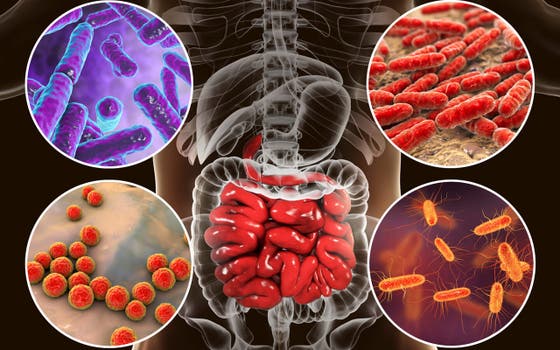Sep 21: Research grant awarded to UMC Utrecht for microbiota-boosted cancer therapy

Health~Holland has awarded close to € 800,000 to a public-private partnership between UMC Utrecht, Artizan Biosciences, Inc. (USA) and MicroViable Therapeutics (Spain) to unravel how the intestinal microbiota can be exploited to boost cancer immunotherapy and limit therapy side-effects. The project will be headed by Marcel de Zoete, PhD of the Department of Medical Microbiology at UMC Utrecht.
Immune checkpoint inhibition (ICI) therapies enable the treatment of an increasing number of metastatic cancers, providing cancer patients with important new perspectives. ICI therapy is designed to (re)activate potent anti-tumor T-cell responses. Surprisingly, the bacteria in the intestinal tract ("microbiota") play an important role in the success of ICI therapy, suggesting that crosstalk between the immune system and bacteria in the intestine can impact the overall anti-tumor T-cell activation status. However, ICI therapy is not without risks; despite being well tolerated by part of the patients and ICI toxicity (“immune-related adverse events”, or irAEs) can be severe, irreversible and even fatal. Strikingly, such adverse events often present in the intestinal tract as severe inflammation. Again, the composition of the microbiota is believed to be a key determinant for toxicity.
Public-private collaboration
In a collaborative effort, UMC Utrecht, Artizan Biosciences and MicroViable Therapeutics aim to uncover bacterial species and underlying mechanisms that impact ICI therapy outcome and irAEs. For this, a large biobank of patient material from cancer patients prior to and during ICI therapy (including samples of patients with intestinal irAEs) will be investigated, immune-stimulatory bacteria will be identified and isolated, and molecular mechanisms will be unraveled using various in vitro and in vivo models.
Microbiota-targeted therapy
Together with its private partners, UMC Utrecht aims to provide a rationale for microbiota-targeted therapy that maximizes efficacy of therapy while minimalizing intestinal adverse events. This project aims to positively impact the health and lifespan of cancer patients by making existing ICI therapies more efficient and cost-effective.
“In up to 56 percent of irAE cases in ICI-treated patients, symptoms present in the intestinal tract as moderate to severe intestinal inflammation, resembling what is seen in patients with inflammatory bowel disease,” said Marcel de Zoete, PhD, associate professor of microbiome research at the Department of Medical Microbiology at UMC Utrecht. “Recent data demonstrate a clear correlation between ICI-induced irAE severity and overall cancer survival. The key challenge is how to maximize ICI therapy effectiveness while minimizing irAEs.”
